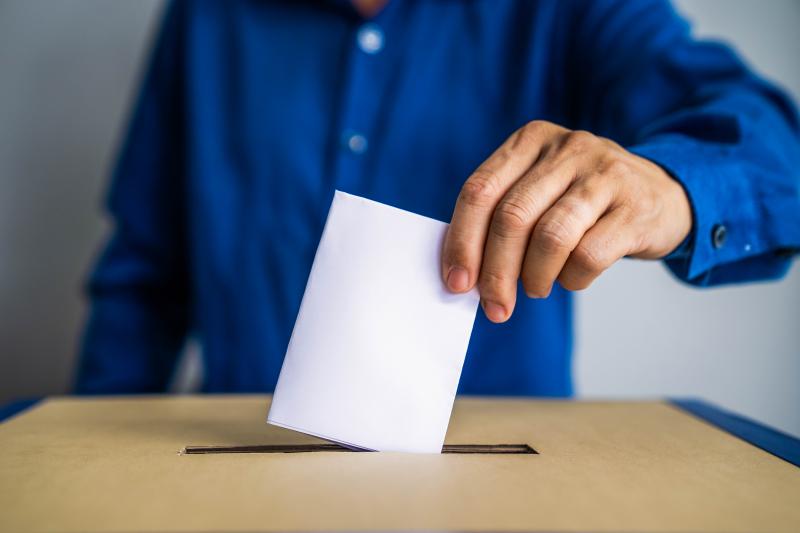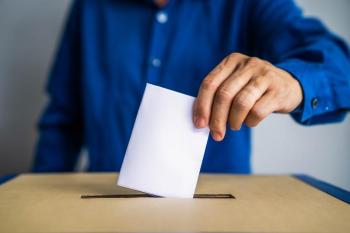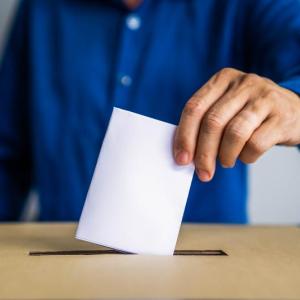This is what happens when a candidate requests a recount of votes cast
Two area election races may undergo the recount process in the coming days, one to determine who will fill the Maine State House District 96 race and the other determining a seat on the Rockland City Council.
In the House District 96 (Belmont, Liberty, Lincolnville, Montville, Morrill, Palermo and Searsmont) race, incumbent Stanley Paige Zeigler, D-Montville, currently maintains a 42-vote advantage over challenger Katrina Smith. Smith, R-Palermo, announced Nov. 5 on her campaign Facebook page her intent to request a recount.
In the Rockland City Council race, Adam Lachman and Louise MacLellan-Ruf requested Nov. 5 the Rockland City Clerk conduct a formal recount. Lachman finished 14 votes behind MacLellan-Ruf.
The process begins when a candidate formally files a request for recount within five businesses days of the election, according to State Statute 21A, Section 737. The request is filed with the Maine Secretary of State for state legislative races and with the municipal clerk for municipal results.
For state legislative seats, a monetary deposit may be required of the candidate requesting the recount, with the deposit returned to the requesting candidate if the recount reverses the election result. The amount of deposit ranges from no deposit, if the difference between the leading candidate and requesting candidate is less than 1.5 percent, to $10,000 if the difference is more than 10% of the total votes cast.
For municipal seats, a candidate requesting a recount shall pay a deposit to the municipal clerk when the recount is requested in an amount determined by the municipal clerk, which must be at least 50 percent of the reasonable estimate of the cost to perform the recount. A deposit is not required if the percentage is equal to or less than 2.5 percent if the combined vote for the candidates is 1,000 or less; 2 percent if the combined vote for the candidates is 1,001 to 5,000; or 1.5 percent if the combined vote for the candidates is 5,001 or over.
After a candidate requests a recount of votes, the Secretary of State will send a written notice of a recount to each candidate for the office in question providing the time and place of the recount for state legislative seats and by the municipal clerk for municipal races.
Upon receiving a request for a recount in a state legislative race, Maine State Police will collect the ballots and other related election materials and will deliver the materials to a secure storage area under its control. The following materials will be retrieved by the State Police and made available for inspection at the recount, if applicable: the used ballots, including voted and counted ballots; spoiled, defective and void ballots which were segregated and not counted; envelopes containing challenge certificates; used absentee envelopes, used absentee applications, test ballots, unused ballots and the incoming voting lists.
Recounts will begin promptly at the assigned time and resume promptly after time allotted for lunch and breaks has concluded. Recounts occur during normal business hours, unless participating candidates agree to continue the recount past 5 p.m.
Each candidate involved in the recount will provide the number of counters required by the recount supervisor. A minimum of six counters per candidate is needed for state legislative races.
Before the recount begins, each candidate will be afforded the opportunity to inspect tamper-proof vote containers, locks and seals to sign off on its conditions.
Each candidate will have a counter paired with a counter from their opponent to form a counting team to sit at a table with a representative from the Secretary of State’s office.
Ballots hand-counted on election night will be kept in their original lots and recounted by hand. Ballots machine-counted on election night will be recounted by hand during the recount. Machine-counted ballots will be separated into piles of 50, or more or less if an odd number of ballots arises.
Disputed ballots will be identified, labeled and segregated. Each candidate can jointly review the disputed ballots to determine how each will be counted. If there are enough disputed ballots to affect the result of the election, the interested candidate may appeal.
Following the recount, each candidate will sign the final recount tabulation form agreeing to the final count for the recount, including the number of ballots remaining in dispute.
If the number of disputed ballots is not enough to affect the election result, the result will be determined by the final count. If the number of disputed ballots is enough to affection the result, the result can be appealed and the result would then be determined by the appeal.
Event Date
Address
United States





























